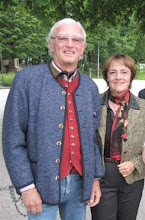Peacehawks has moved to a new site. We took all the previous materials along, but we don't want to take a chance that we might lose any of you, so we're leaving this change of address here.
We are now at www.peacehawks.net
and you can visit us there now - we'd love to hear from you and to see you again!
In a few hours we'll have posted a new article, which we think you'll find interesting and useful.
See you there?
Jamie
Tuesday, May 5, 2015
Friday, January 30, 2015
LINES WRITTEN A FEW METRES ABOVE UNTERWASSERSTRASSE[i]: MEDITATING ON MEDIATING
By Jamie Arbuckle, for Peacehawks
Introduction
and Background
The end of the Cold War did not, as we then
so fondly hoped, usher in an era of peace.
Although interstate wars may seem to have become relatively rare,
intra-state conflict has become nearly constant and largely intractable. Armed force alone is of little value in resolving
these lower-level but deadly conflicts – and intrastate wars have since the
early Nineties been characterized by sickening casualty tolls.[ii] Alternate means of management and resolution
of conflicts by non-violent methods have therefore been widely sought. These have, in some cases, offered real hope
for the mitigation and even the prevention of conflict.
A resultant interest in the tools of
mediation and negotiation continues to grow.
The entire field which is generally referred to as alternate dispute
resolution seems to present an attractive soft power tool box for the restoration
and maintenance of peace. It has become an essential measure for containing,
preventing and (hopefully) resolving conflict – non violently.
On 25 November 2014 Peacehawks attended a
conference on Peace Mediation, jointly sponsored by the German Foreign Office
and, prominently among others, the Berlin-based Zentrum fuer Internationale Friedenseinsaetze (ZIF: Center for
International Peace Operations). The
conference was held in the Europa Saal of the Federal Foreign Office on
Unterwasserstrasse in Berlin. The
conference, as it developed, was not really about mediation itself, but rather
about the questions of if, how and in what cases, Germany might have a third
party role in conflict intervention. As was soon pointed out by several
delegates, this question has been under discussion at least since the end of
the Cold War. Considered answers have ranged all the way
from “Why not?” to “Of course!”
Regarding the participants of this
conference from the narrow ledge of my generation gave me an almost vertiginous
feeling – they were mostly 40 or a bit, mostly German, and about half
women. And here they were facing up to a
question, or a bundle of questions, which the graybeards of my service time in
Germany had found unthinkable – when most of this audience were just in their
teens. Some people have indeed come a
very long way in just one generation.
Nevertheless, I’d lived with these questions for a long time, and they
were no longer up to me or even my generation.
So I slipped away to thinking about just what mediation really means,
and how it ought to work – but has, in our life and times, so seldom done.
Subscribe to:
Comments (Atom)

